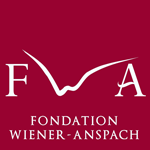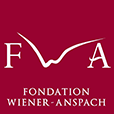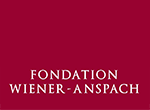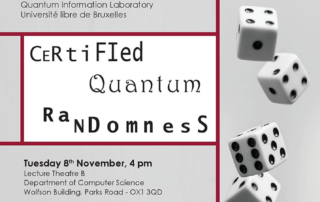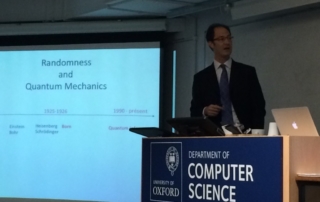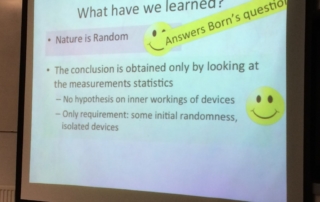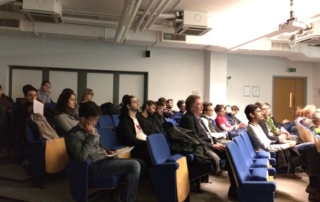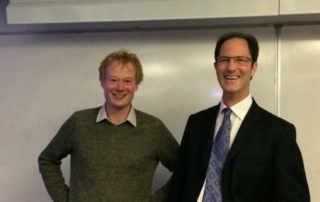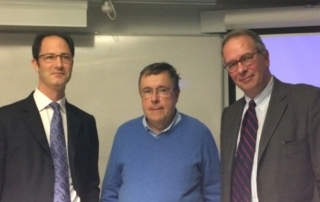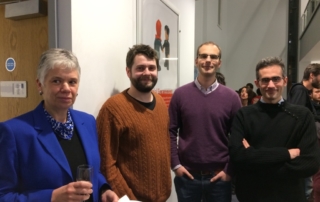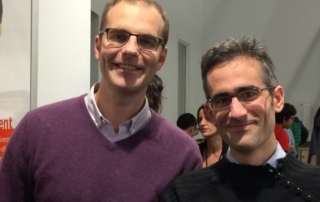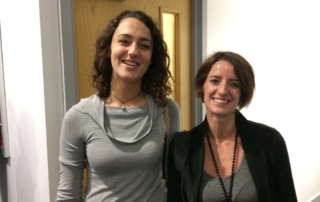Leçon Oxford 2016 – 2017
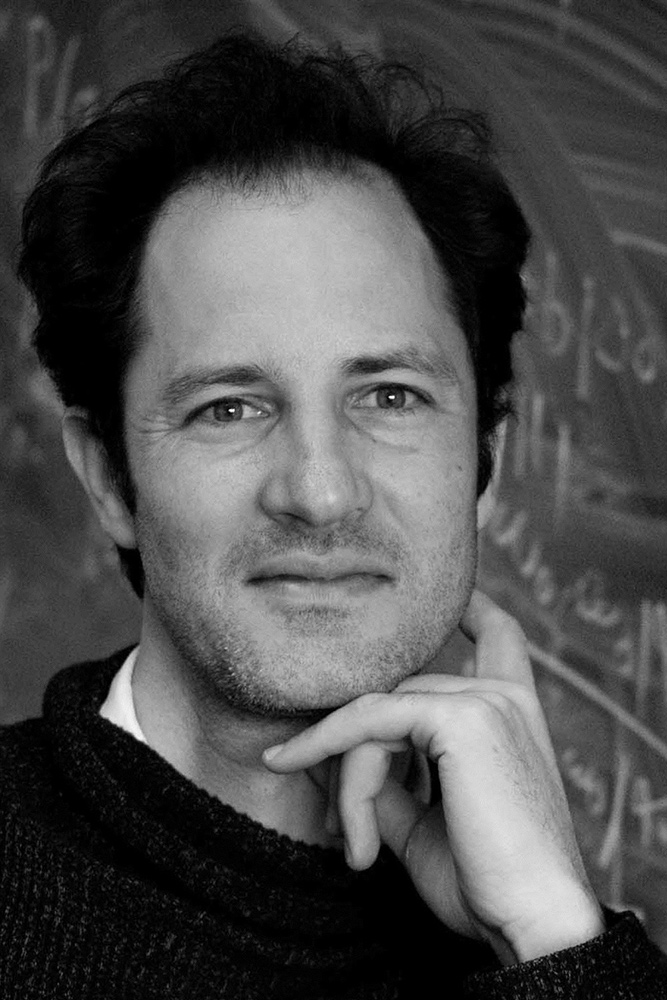
Le mardi 8 novembre 2016 Serge Massar (Laboratoire d’Information Quantique, ULB) a donné une conférence intitulée « Certified Quantum Randomness » à l’Université d’Oxford. Il était accueilli par le Dr. Jonathan Barrett (Department of Computer Science).
Abstract
Randomness is a phenomenon which we are confronted with all the time. Will it rain today? Will the train be on time? What present will I receive at Christmas?
But are such phenomena truly random?
Good randomness is essential for many applications. For instance, cryptography, the art of hiding information from malicious parties, is only as good as the sources of randomness that underlie it.
Quantum mechanics, the theory of microscopic phenomena, can only predict the probability of events. For instance quantum theory can only predict the probability that a radioactive nucleus will decay, not when the nucleus will decay. Does this mean that microscopic phenomena are truly random?
By studying systems of two entangled particles, it can be shown both theoretically and experimentally, that events at the microscopic scale are truly random, truly unpredictable. Beyond its philosophical implications, this result also has important potential applications. Indeed it implies that one can build random number generators that certify that they work correctly. That is, if the random number generator malfunctions in some way, if the numbers it produces cease to be random, this will automatically be detected. By extending this idea, one could also build quantum cryptographic systems and quantum computers that certify that they work correctly.
